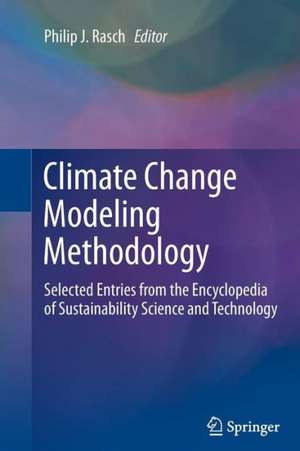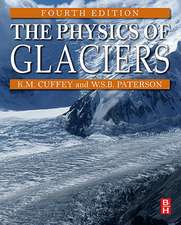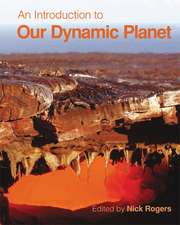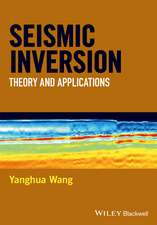Climate Change Modeling Methodology: Selected Entries from the Encyclopedia of Sustainability Science and Technology
Editat de Philip J. Raschen Limba Engleză Paperback – 27 ian 2015
| Toate formatele și edițiile | Preț | Express |
|---|---|---|
| Paperback (1) | 946.72 lei 6-8 săpt. | |
| Springer – 27 ian 2015 | 946.72 lei 6-8 săpt. | |
| Hardback (1) | 951.29 lei 6-8 săpt. | |
| Springer – 6 dec 2012 | 951.29 lei 6-8 săpt. |
Preț: 946.72 lei
Preț vechi: 1154.54 lei
-18% Nou
Puncte Express: 1420
Preț estimativ în valută:
181.15€ • 189.65$ • 149.89£
181.15€ • 189.65$ • 149.89£
Carte tipărită la comandă
Livrare economică 05-19 aprilie
Preluare comenzi: 021 569.72.76
Specificații
ISBN-13: 9781489987013
ISBN-10: 1489987010
Pagini: 344
Ilustrații: VI, 338 p.
Dimensiuni: 155 x 235 x 18 mm
Greutate: 0.48 kg
Ediția:2012
Editura: Springer
Colecția Springer
Locul publicării:New York, NY, United States
ISBN-10: 1489987010
Pagini: 344
Ilustrații: VI, 338 p.
Dimensiuni: 155 x 235 x 18 mm
Greutate: 0.48 kg
Ediția:2012
Editura: Springer
Colecția Springer
Locul publicării:New York, NY, United States
Public țintă
Upper undergraduateCuprins
1. Climate Change Modeling Methodology, Introduction
2. Coupled Climate and Earth System Models
3. Cryosphere, Modeling of
4. Oceanic General Circulation Models
5. Weather Prediction Models
6. Atmospheric General Circulation Modeling
7. Earth System Model, Modeling the Land Component of
8. Integrated Assessment Modeling
9. Regional Climate Models
10. Climate Change Projections: Characterizing Uncertainty Using Climate Models
11. Climate Predictions, Seasonal-to-Decadal
12. Monsoon Systems, Modeling of
Index
2. Coupled Climate and Earth System Models
3. Cryosphere, Modeling of
4. Oceanic General Circulation Models
5. Weather Prediction Models
6. Atmospheric General Circulation Modeling
7. Earth System Model, Modeling the Land Component of
8. Integrated Assessment Modeling
9. Regional Climate Models
10. Climate Change Projections: Characterizing Uncertainty Using Climate Models
11. Climate Predictions, Seasonal-to-Decadal
12. Monsoon Systems, Modeling of
Index
Textul de pe ultima copertă
The Earth's average temperature has risen by 1.4°F over the past century, and computer models project that it will rise much more over the next hundred years, with significant impacts on weather, climate, and human society. Many climate scientists attribute these increases to the buildup of greenhouse gases produced by the burning of fossil fuels and to the anthropogenic production of short-lived climate pollutants. Climate Change Modeling Methodologies: Selected Entries from the Encyclopedia of Sustainability Science and Technology provides readers with an introduction to the tools and analysis techniques used by climate change scientists to interpret the role of these forcing agents on climate. Readers will also gain a deeper understanding of the strengths and weaknesses of these models and how to test and assess them. The contributions include a glossary of key terms and a concise definition of the subject for each topic, as well as recommendations for sources of more detailed information.
Features authoritative, peer-reviewed contributions on the development and use of contemporary methods in climate change science
Provides insight into the construction, assessment, and testing of climate models
Covers individual component models for the atmosphere, ocean, land, and ice, and discusses their contribution to an example of climate change in monsoon systems
Discusses how climate change models can shed light on the changing climate of the past and on possible shifts in the future
Features authoritative, peer-reviewed contributions on the development and use of contemporary methods in climate change science
Provides insight into the construction, assessment, and testing of climate models
Covers individual component models for the atmosphere, ocean, land, and ice, and discusses their contribution to an example of climate change in monsoon systems
Discusses how climate change models can shed light on the changing climate of the past and on possible shifts in the future
Caracteristici
Features authoritative, peer-reviewed contributions on the development and use of contemporary methods in climate change science
Provides insight into the construction, assessment, and testing of climate models
Covers individual component models for the atmosphere, ocean, land, and ice, and discusses their contribution to an example of climate change in monsoon systems
Discusses how climate change models can shed light on the changing climate of the past and on possible shifts in the future
Includes supplementary material: sn.pub/extras
Provides insight into the construction, assessment, and testing of climate models
Covers individual component models for the atmosphere, ocean, land, and ice, and discusses their contribution to an example of climate change in monsoon systems
Discusses how climate change models can shed light on the changing climate of the past and on possible shifts in the future
Includes supplementary material: sn.pub/extras













